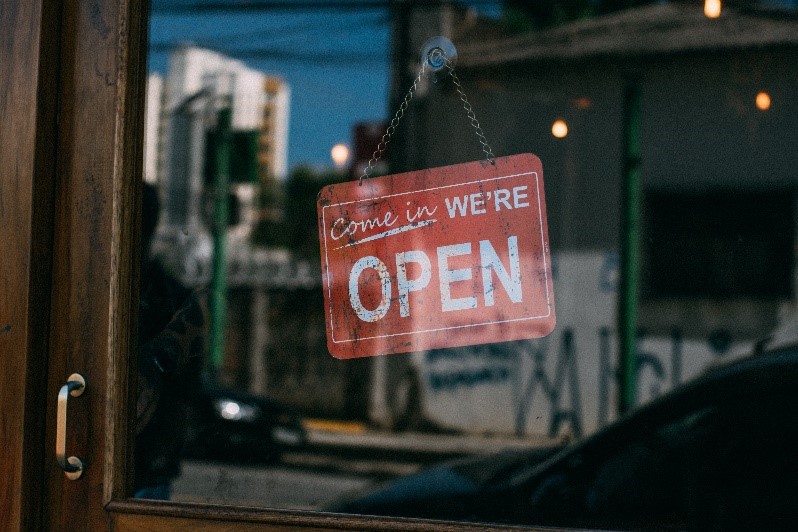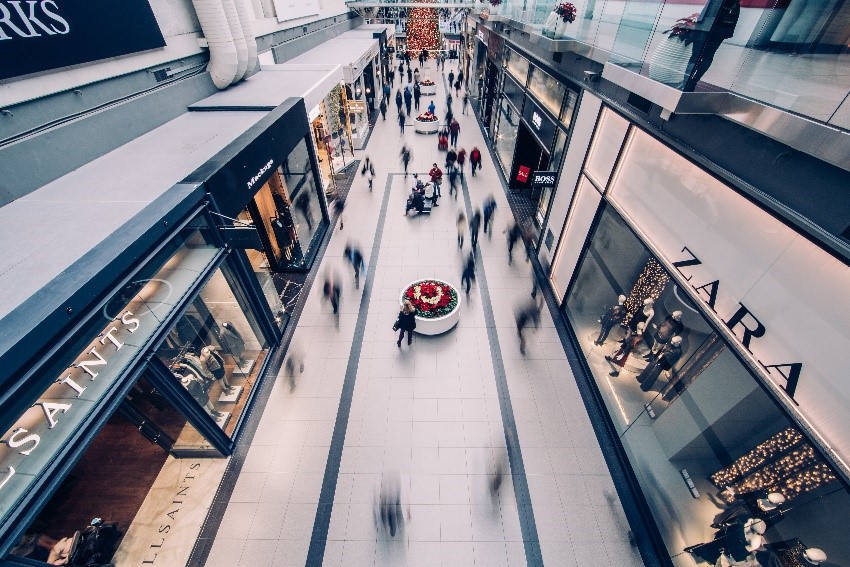For almost three months, the shops of High Street sat closed. While some businesses have been able to reopen, the bustling commercial shops and retail centres will never be the same. Some doubt that the lights of High Street will ever shine as bright as they once did. The COVID-19 pandemic has crippled many small businesses over the last few months. As business owners face reopening, they are burdened with new restrictions and requirements that add cost and stress.
Retail shops are facing an unfavourable predicament: stay closed and ultimately close up shop or open too fast and face closing again. These challenges are bigger than the threat of financial downturn. Ultimately, they will be life-changing decisions that will alter High Street and small businesses forever.

The impact of COVID-19 on High Street Businesses
A survey conducted by CNBC.com recently shows that “72% of all small business owners say the outbreak is likely to have permanent effects on the way they run their business” (Rosenbaum, 2020). The immediate outlook is scary because consumer confidence and income were greatly impacted. “The totality of the plunge in expectations from just a dozen weeks ago to now is staggering, with small business owners representing every industry, firm size and political affiliation all reporting the same reversal in sentiment,” said Jon Cohen, SurveyMonkey chief research officer in the Rosenbaum article on CNBC.com.
Not only are business owners hoping for confidence to rebound, they must shell out money just to meet basic reopening requirements. Balancing the health and safety of employees, customers, and suppliers has made it more difficult to do business. From altering store layouts and menus to adopting new cleaning protocols and adding barriers, business owners must make a lot of changes. Touchless checkout systems and changes to the delivery of products and services add to the list of considerations for High Street businesses.
The individual transformations needed vary, but many small businesses will have to make massive shifts in their day-to-day operations. As the world adjusts to a new sense of normal, both physical changes and psychological impacts will occur. Employees who have been out of work or isolated at home due to lockdown orders might struggle to return fully to work. Concerns for health and safety loom large, especially for their families and loved ones.

High Street shop owners are coping with COVID-19 stress
The stress faced by business owners is also layered. Business owners may have had to laid off employees or furlough staff. They had to abandoned shops or shutter them up without knowing if they could ever return. They have been isolated and left in limbo as they wade through government assistance processes just to help make ends meet. They have had to adopt sweeping new rules by local government in order to reopen. “The economic reopening from state to state remains a source of uncertainty rather than confidence for many small business owners.” (Rosenbaum, 2020)
As the engine of the economy, small businesses have never faced such a threat. The unprecedented pandemic and worldwide shutdowns leave business owners without a reference manual as they cope with uncertainty and fear. For some, reopening the doors to their High Street shop will be a leap of faith and trust that customers will return.
“They are not quite sure if their customers can pay, or what customers will look like, what buying habits will come out of this, if their product will have the same appeal” said Marilyn Landis, who runs small business consulting firm Basic Business Concepts in Rosenbaum’s recent article.
To add additional stress, business owners are facing complaints and push back from customers. Some customers are unhappy to wait in line due to limited capacity restrictions, adhere to appointment or reservation-only requirements, or wear personal protective equipment inside High Street shop and restaurants. While the changes required for businesses to reopen will not please everyone, business owners are responsible for patron and employee health. Making adequate changes and staying the course can help prevent customers or staff getting sick.
If High Street is forever altered, the communities around these commercial centres will be impacted as well. “Small business owners also fear that bigger companies will be in a better position to take advantage of the re-openings”, (Rosenbaum, 2020). Less competition and reduced choices do not help jumpstart the economy, and customers will likely pay more for less. However, the uncertainty of a second wave of the virus may make customers more willing to spend disposable income. Small businesses can prepare and remain flexible to ensure they can provide inviting and safe spaces for their customers.
How everyone can help the High Street succeed
Both consumers and business owners should be aware of the changes occurring on High Street. To boost our economies, small businesses must thrive. Everyone plays a part in ensuring that small, local, and entrepreneurial business efforts remain vital.
Amanda Ballantyne, executive director of the Main Street Alliance, was quoted in the CNBC report “The loss of small business will have a multiplier effect. We will not just burn through the vulnerable businesses and then be fine. There will be a second wave of small businesses burned, unless we get better policy in place, there will be another wave, and it will be more painful and impact people who thought they were recession-proof.”
Consumers can help High Street businesses by honouring a store’s policy. Respecting the new procedures in place can reduce stress on shop owners and help everyone stay safe. For both consumers and High Street staff, kindness, patience, and compassion can go a long way during these uncertain times.



